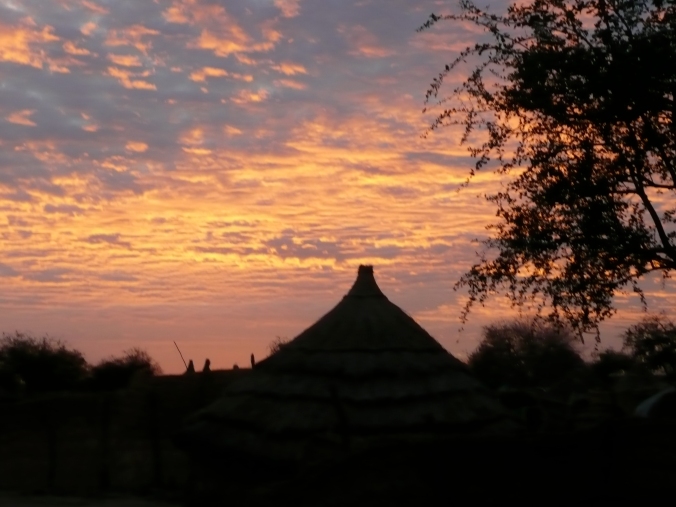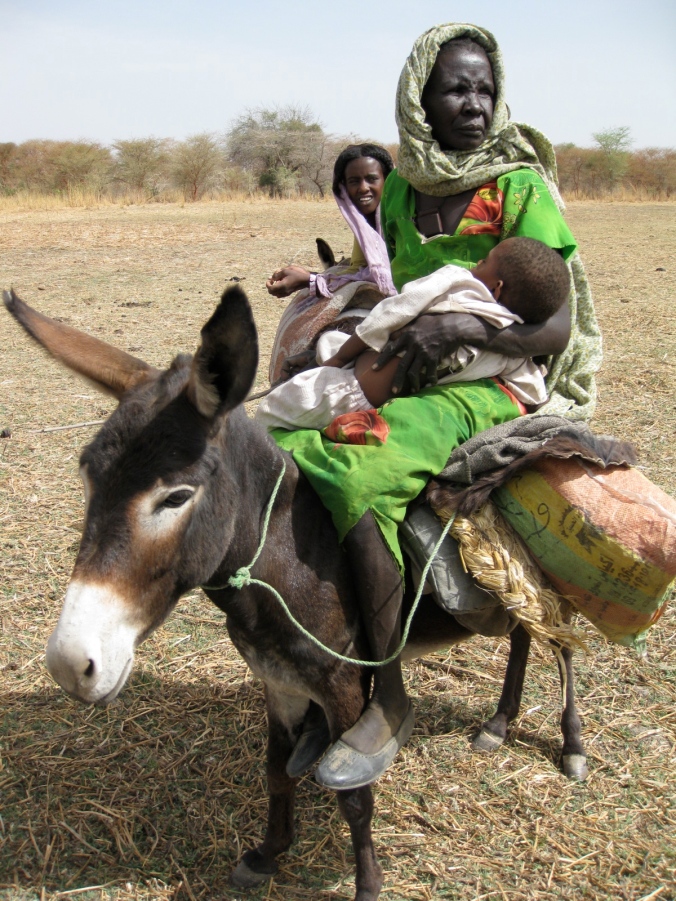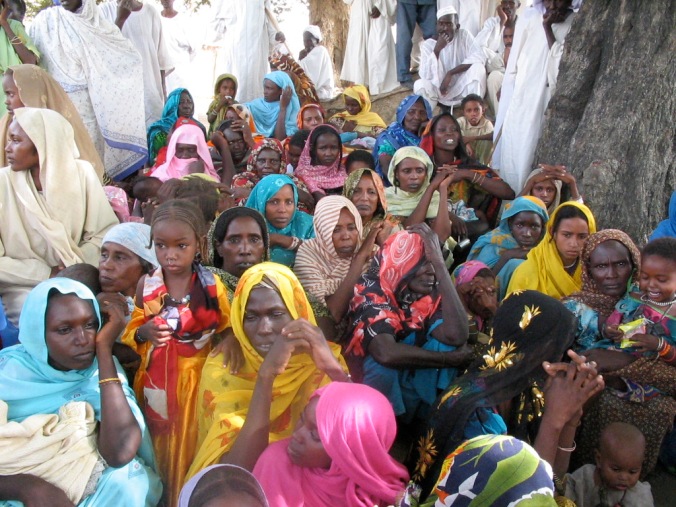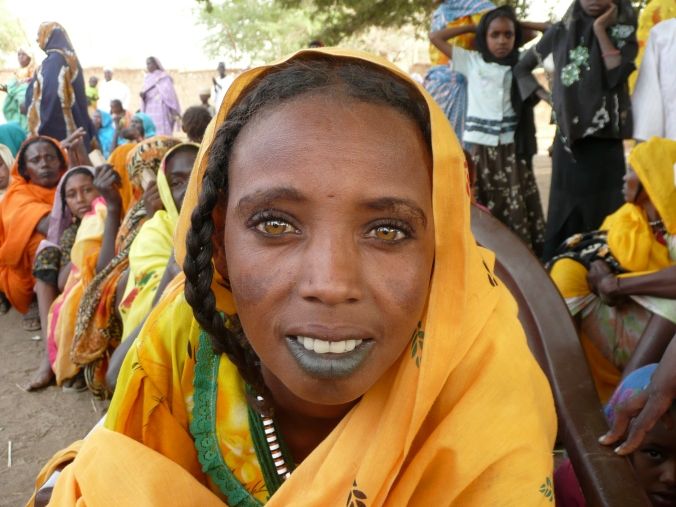Day Eight
Today was a day like no other for me. I had studied the human body and its functions for over three years; these pathways had been mapped out on lined white paper for me to learn more often than I care to remember. I understood how the brain was signaled to life, how muscles were triggered to move and what ordered the functioning of glands but today was the first time I had closed my eyes and instead of seeing those memorized pictures of static activity, I could feel the dynamic neuronal circuitry commanding my body. The electrical impulses surged across axions provoking neurotransmitters to jump out across the synaptic gaps filling chemical receptors on the other side, quickly clearing out and rushing on their way to initiate the “fight or flight” response in strong pulsating fashion. The surging power coursed through my central nervous system then to the periphery; the numb tingling sensation of adrenaline, an aphrodisiac to the nerves, excited my heart rate, badgered my blood pressure to climb, weakened my quadriceps and suddenly bathed in sweat and battling nausea, a thought emerged from the pounding hum of racing blood cells, “we are lost”.


Haliid Abedell is literally in the middle of nowhere 50 Ks inside the border of Darfur. It was almost insane that anyone, let alone us, would want to come out here in this dry and weary land, attempting to navigate the brush to a people very few had heard of, but we had our reasons; the Colonel and Darfuri rebel commander wanted to forge closer ties, the doctor and nurse wanted to reach the unreachable, and the literacy program director wanted to plant a seed in the Rizeigat people. Following the pick-up truck loaded with soldiers carrying RPGs (rocket-propelled grenade launchers), 60 caliber machines guns, and AK47s, we realized that our American passports and even South Sudanese visas meant nothing; we were at the mercy of Darfur, our guides, the trackers and any random janjaweed that stumbled upon us. What should have been a two-hour ride through blistering hot back country bush took three and a half because we lost the “road”, a road I never spied to begin with. Stepping out of our vehicles while the trackers searched for evidence of our path was when I had my neurological epiphany. After twenty minutes or so, we crammed back into our vehicles and followed what was thought to be the way.

By the time we arrived I was pretty wiped out from my persistent heightened state. You see I’m a “what if-er”; what if we get lost?, what if we can’t find our way back?, why are we going further if we can’t find our way back?, what if I am faced with spending the night on the Darfuri desert floor without the zippered protection of my tent from the arachnids?, what if i never get to go home again and feel the amazing sensation of cold water slipping down my esophagus?, what if I never get to tell my mother I love her again?, what if… “what if” never happened but man was I tired from worrying about it and I still had a long day of clinic to go evidenced by the massive number of people milling around. Where did they all come from? We hadn’t seen anyone for three and a half hours. We were greeted warmly with open arms and lamb stew. You see, hospitality runs deep in this culture and they feel it is an honor to have us visit them so in recognition of this honor, they presented us with a special meal and there was nooo way we could turn that down without offending them no matter how late we were or how many what-if’s I could come up with..

Clinic was very difficult in this location. First, we had arrived late (and had to eat a meal first) which meant that clinic would be cut short so we could get home before dark and second, the chiefs in the village insisted we set up camp inside a hut rather than outside under a tree in the breeze. I have already explained the issue with privacy here and this inability to participate in group health (or nosiness) was just not going to be tolerated by the masses; the villagers desperately wanted to see and be seen by the doctors. Though a line had been formed outside the hut from the doorway, it wasn’t long before the people lined along the outside walls in an attempt to peek inside. They pressed in on all walls, poking their fingers in through the weave, shredding the thatch to make peep holes. It seemed that at any minute the swaying walls would cave in and I would be buried under sheets of dried fiber. When the determination and curiosity could no longer be restrained, they started to storm the doors. Order was barely maintained. It was intense. At this point, I heard one of our men suggest we move the trucks closer to the clinic so that when the time came to close shop we could make a quick exit in case the unseen people took issue…(here go the synapses again, ugh). What if I just kept working… I kept working.

One particular man I helped had burnt his hand gathering gum from the Sudan gum tree. The burn was at least a month old and his hand was contracted. He could not extend his fingers, I couldn’t even extend them for him. His skin was badly charred and in the debriding process it came off in chunks. He was such a stoic man and insisted it didn’t hurt but I could tell it did, the fixed facial expression of tense control gave him away. I worked as gently as possible often assessing his pain but the reply was always the same, a stern nod which translated to, “I am fine, continue.”
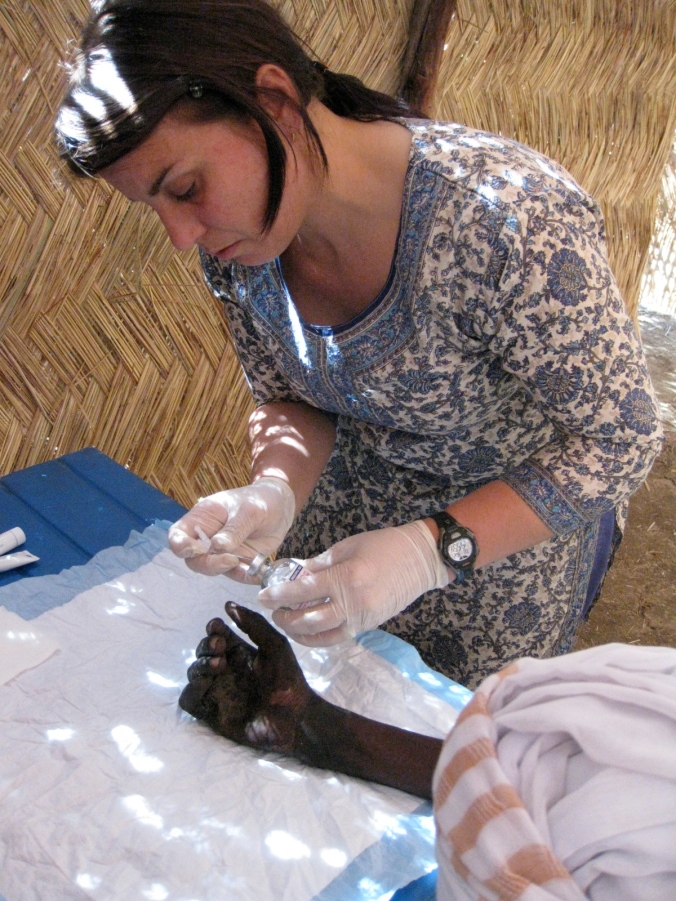
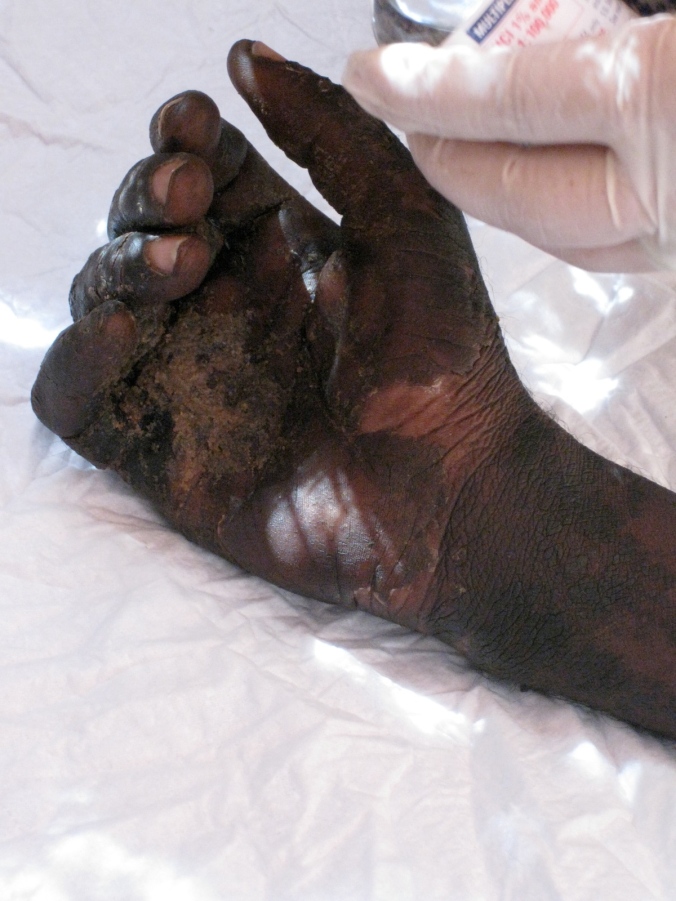
After this, I looked up and noticed that the doctor and his translator were gone. My translator (the Colonel) was distracted but before I could inquire he jumped up and said to me, “Come on, I think we better go, something happened.” Oh my goodness! For real? I grabbed my stethoscope, backpack and water and ran to the back of the hut following closely behind the Colonel, my heart racing as I thought I was running for my life. Suddenly we came to a halt, there on the floor was an 8 month pregnant woman crying with the doctor hovering over her. She had not felt her baby move in three days. I knelt down beside her but neither the doctor nor I could find the baby’s heart beat. I placed my hands on her swollen belly, and suddenly become overwhelmed with empathy for this woman. Losing a baby is difficult enough but living in a society where having children is the vehicle for gaining status, for gaining respectability, this was going to be especially difficult. I caught her eye and as she placed her hand on mine, we cried together. The Colonel returned (I didn’t even know he had gone) explaining he had found someone who would arrange a ride for her to the hospital five hours away.
We continued to work for a couple of hours more seeing a few hundred people in total, before the time came for us to depart. Departure was rather uneventful but we did leave from the back door (with the Chief’s consent). The hut walls were riddled with holes and quite a few villagers were left unseen. That has got to be the hardest part of field medicine for me, walking away when there still exists a line of untreated people who may never again see a clinic. I am often the person in the truck with my necked craned backwards staring intensely at the villagers as if my projected thoughts could launch spontaneous mass healing. I know I can’t help everyone in the world, I can only help one at a time, but couldn’t I have more time?
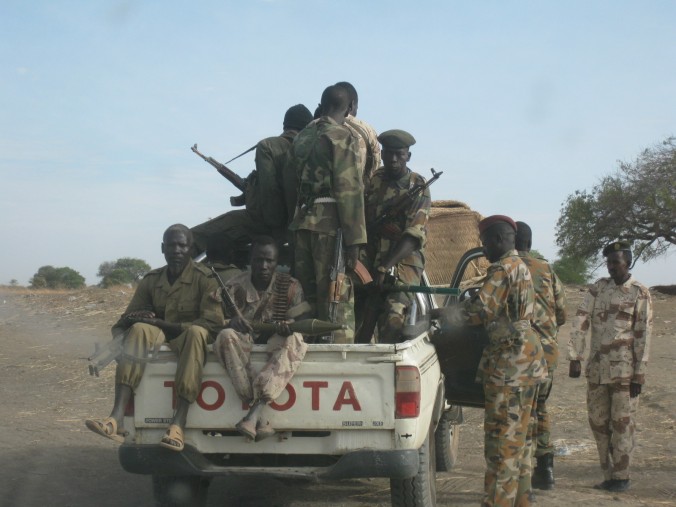

Driving home in the waning sunlight surrounded by soldiers I found my “what-if’s” were gone. The route home didn’t appear to be the same one from which we arrived but what did I know? Of course, this left me to believe we could get lost but I couldn’t muster the energy to worry anymore, what good did it do anyway. Instead, I leaned back in my seat and watched the low-lying Manzanita trees whisk by wondering what music I would score for this melancholy moment during this scene in my life’s movie. (Yep, I watch too many movies.) However, before I could decide we came to a stop and what I saw shocked me to no end; there was a young woman wandering through the bush, still two hours from the closest village. How did she get here? Why did she come out here? Why was she alone? One of our translators went out to talk to her then brought her to the truck. She was severely dehydrated, and confused. We helped her in the truck, and continued on our journey home. We slowly rehydrated her along the way and guess what? I found one more what-if… What if we hadn’t come by?





